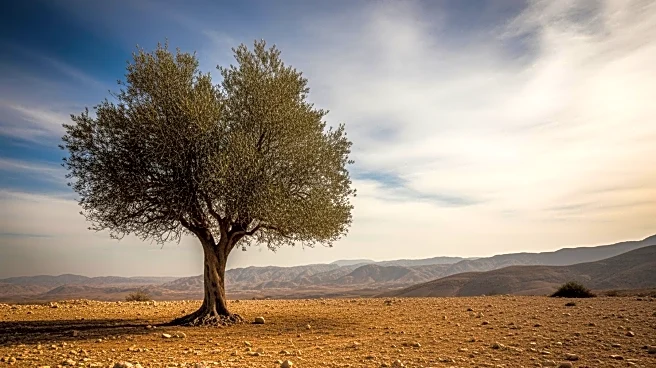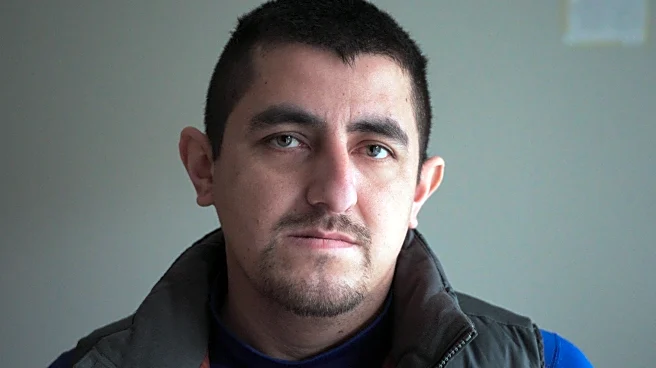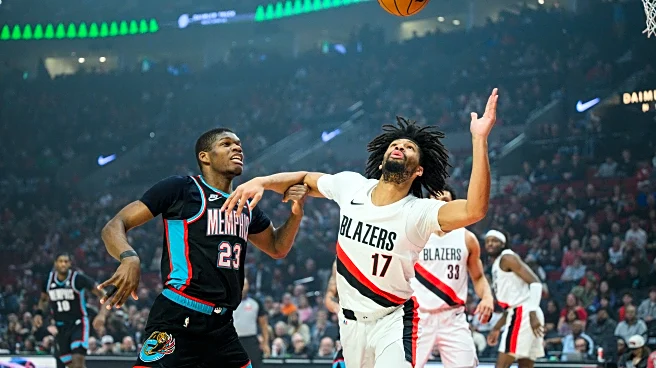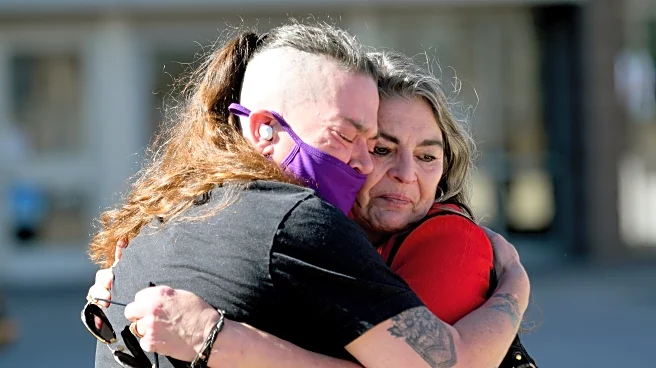What's Happening?
Mitri Raheb, a Palestinian theologian and president of Dar al-Kalima University, has been addressing existential questions through his work and writings. Growing up in Bethlehem, Raheb faced numerous questions about
faith and science, which his pastors could not answer. This led him to pursue a doctorate in theology in Germany. Upon returning to Bethlehem in 1987, he became a youth pastor during the First Intifada, a period of significant unrest in the West Bank and Gaza. Raheb has since authored over 50 books, including 'Bethlehem Besieged' and 'Decolonizing Palestine.' His latest work, 'Tear Down These Walls,' co-edited with Miguel De La Torre, continues to explore themes of liberation and decolonization. Raheb's work is characterized by a hermeneutic approach that contextualizes the Bible within the Palestinian experience of occupation.
Why It's Important?
Raheb's work is significant as it provides a unique perspective on biblical scholarship, rooted in the lived experience of Palestinians under occupation. His writings challenge traditional interpretations of the Bible, offering a voice that speaks to the oppressed and marginalized. This approach not only enriches theological discourse but also contributes to broader conversations about justice and peace in the Middle East. Raheb's efforts in education and cultural development, such as founding an arts and culture center that evolved into a university, highlight the role of contextual theology and art in fostering resilience and hope in conflict zones.
What's Next?
Raheb continues to share his insights through international panels and discussions. His upcoming panels, 'Scripture, Hermeneutics, and the Middle East' and 'Theology After Gaza,' will further explore contemporary Palestinian Christian theologies. These discussions are expected to engage scholars and audiences in meaningful dialogue about the intersection of faith, politics, and social justice. Raheb's ability to travel and participate in such events, however, remains contingent on the political situation in the region, particularly the policies of Israeli leadership regarding movement restrictions.
Beyond the Headlines
Raheb's work underscores the importance of contextual theology in addressing the complex realities of life under occupation. His approach not only provides spiritual guidance but also serves as a form of resistance against cultural and political domination. By integrating art and theology, Raheb advocates for a holistic approach to liberation that encompasses both spiritual and cultural dimensions. This perspective challenges dominant narratives and empowers communities to envision and work towards a more just and equitable future.









